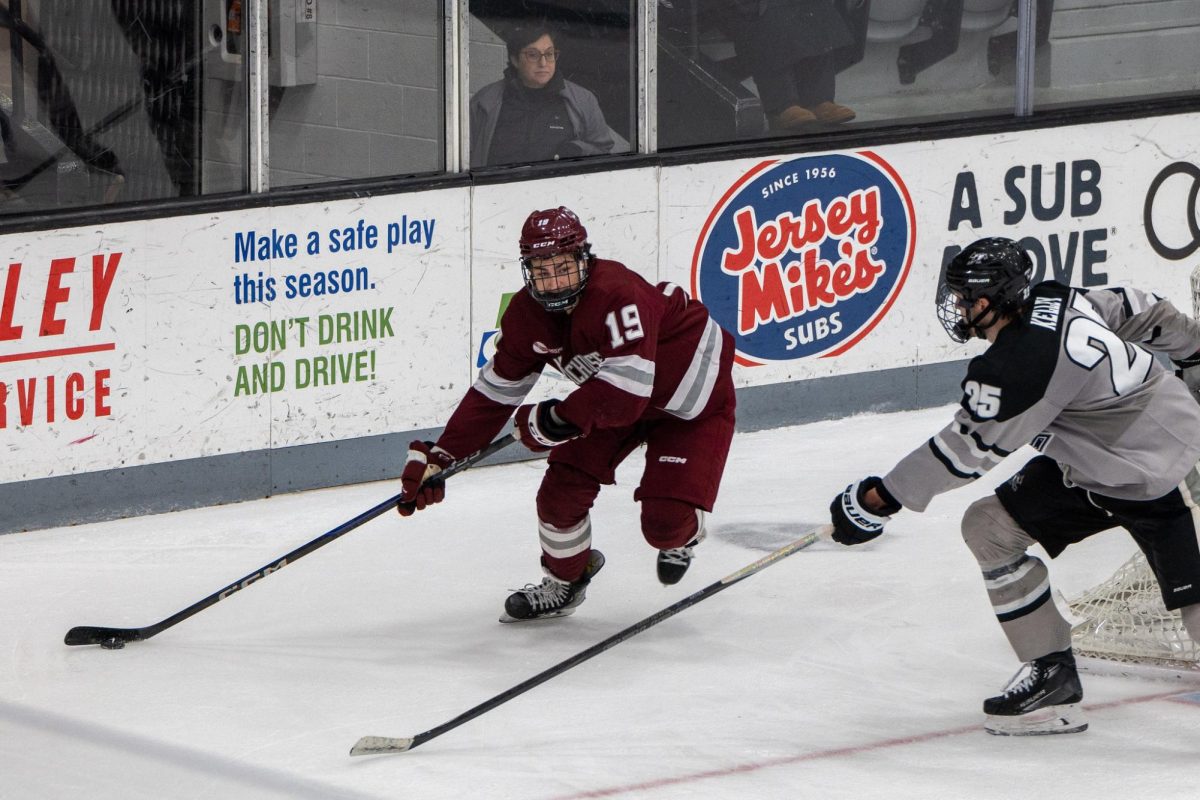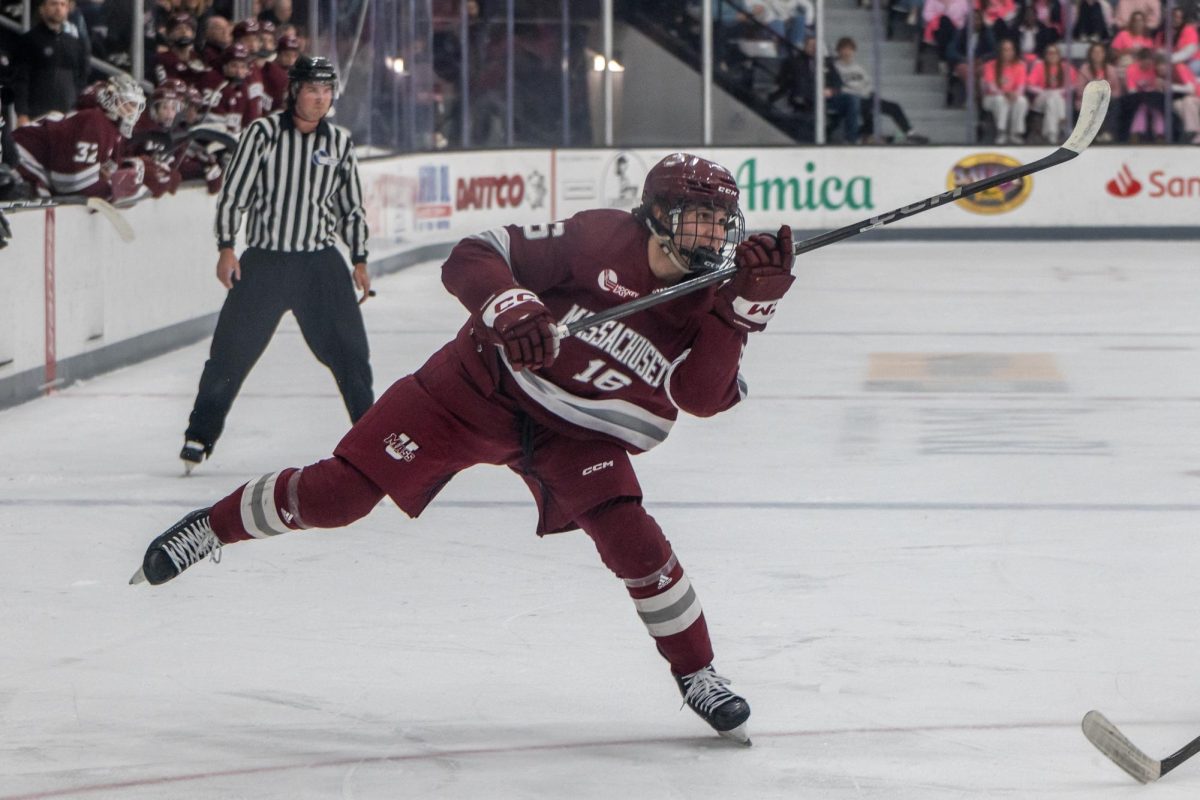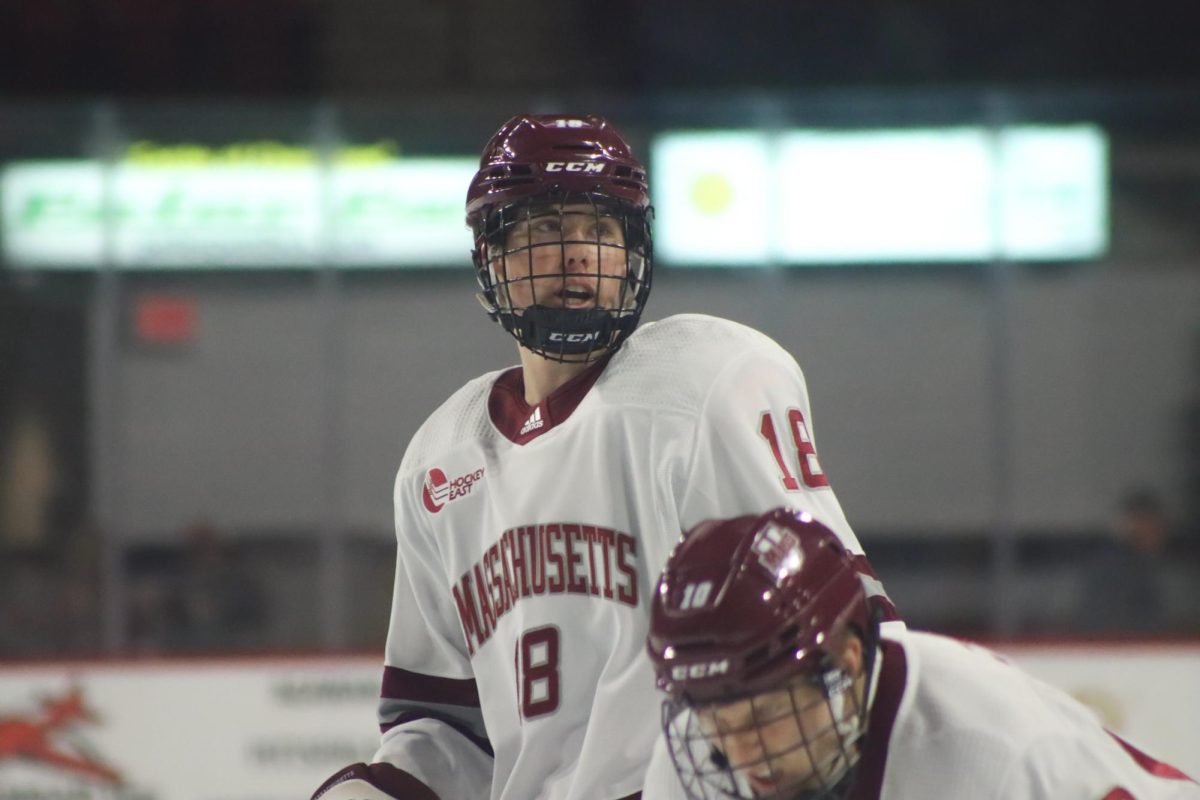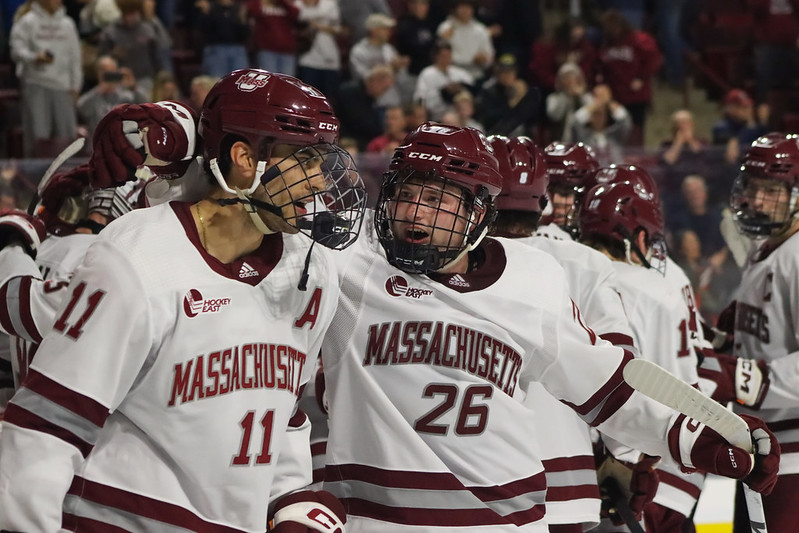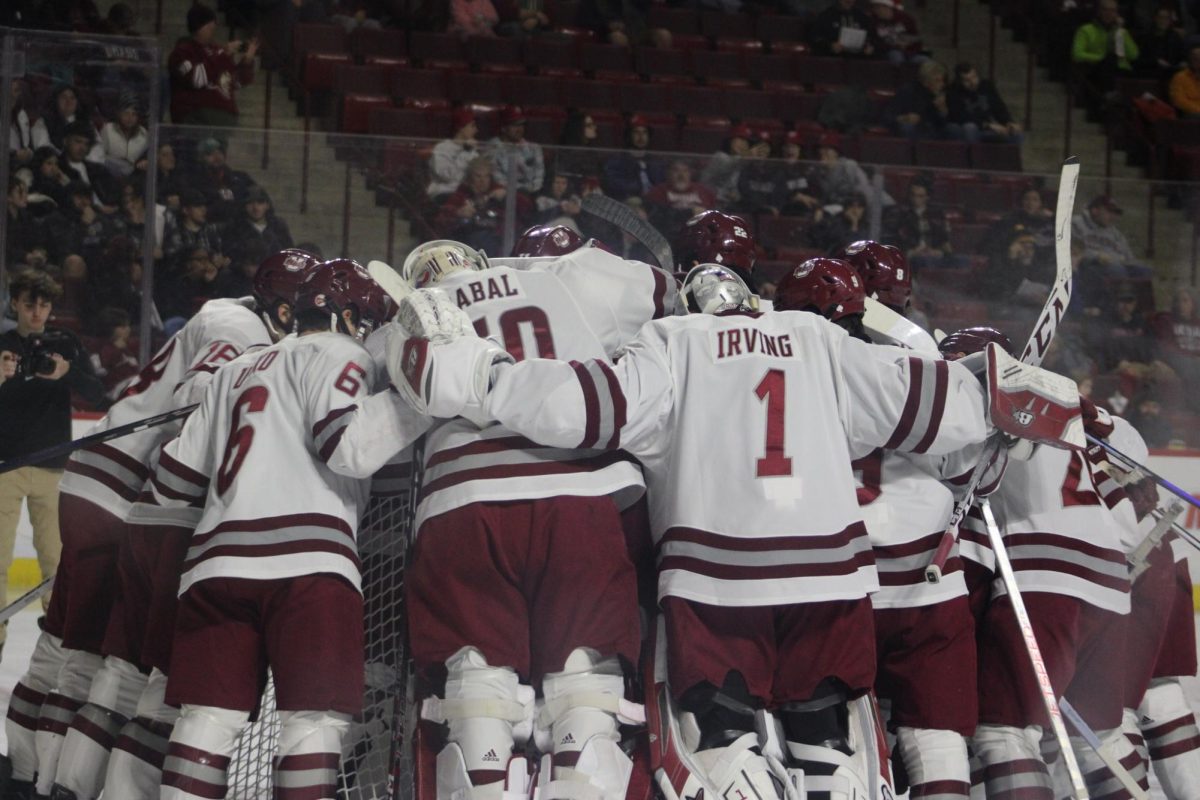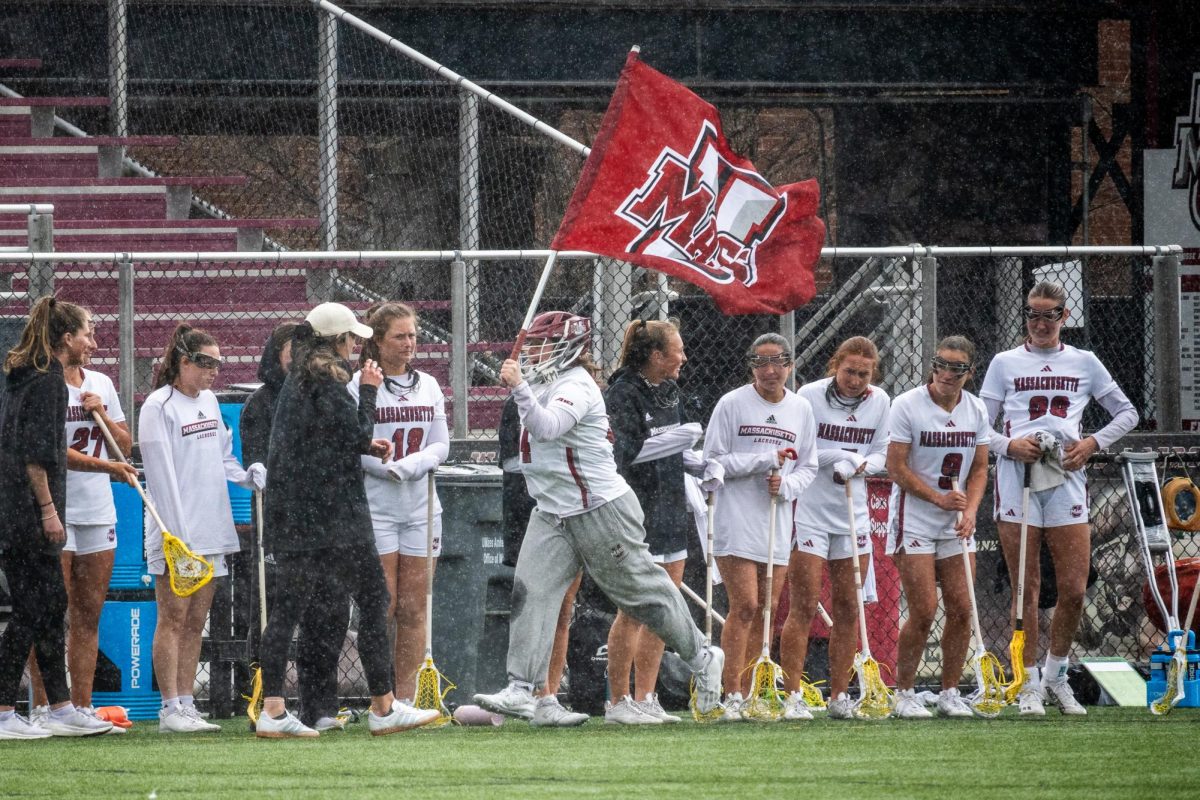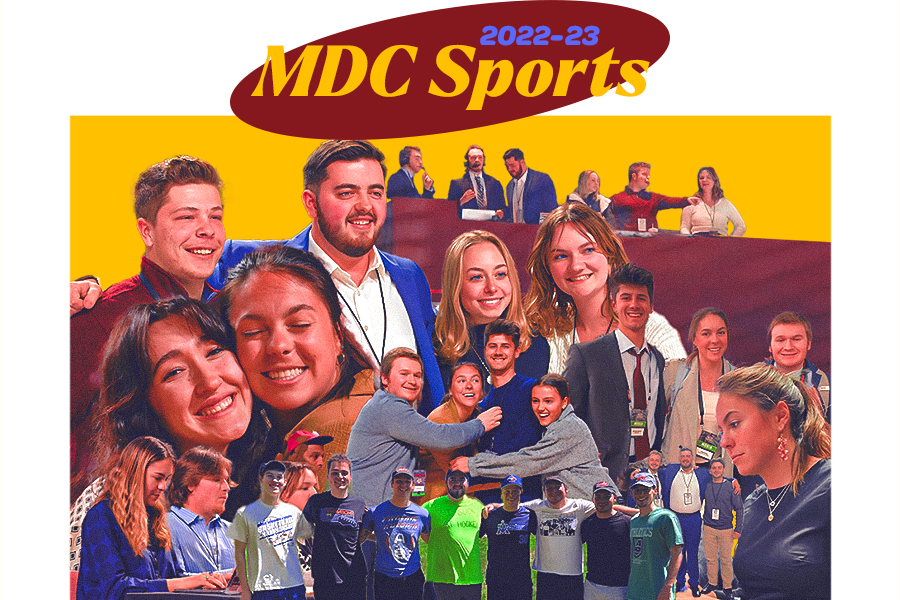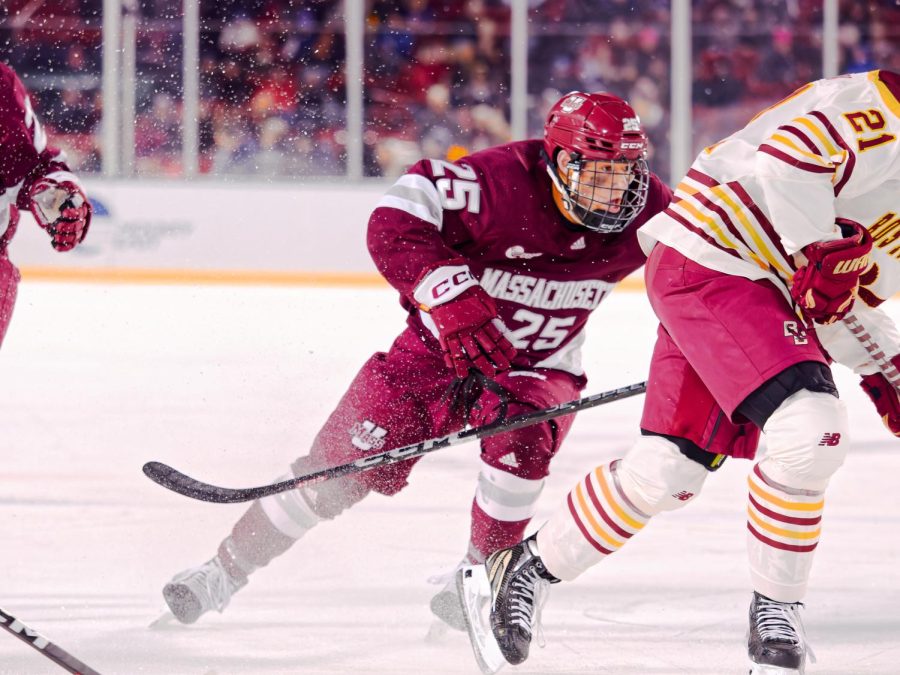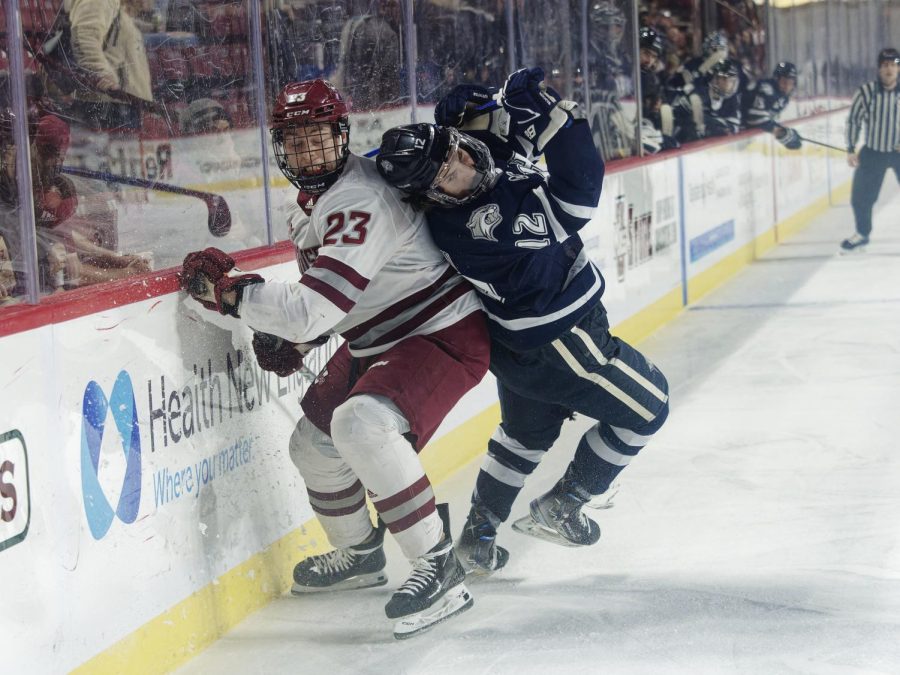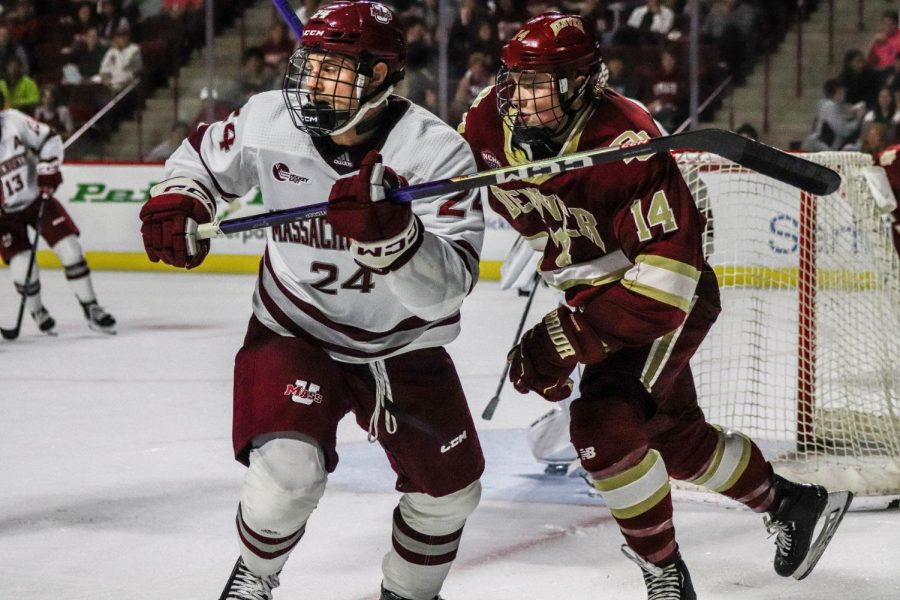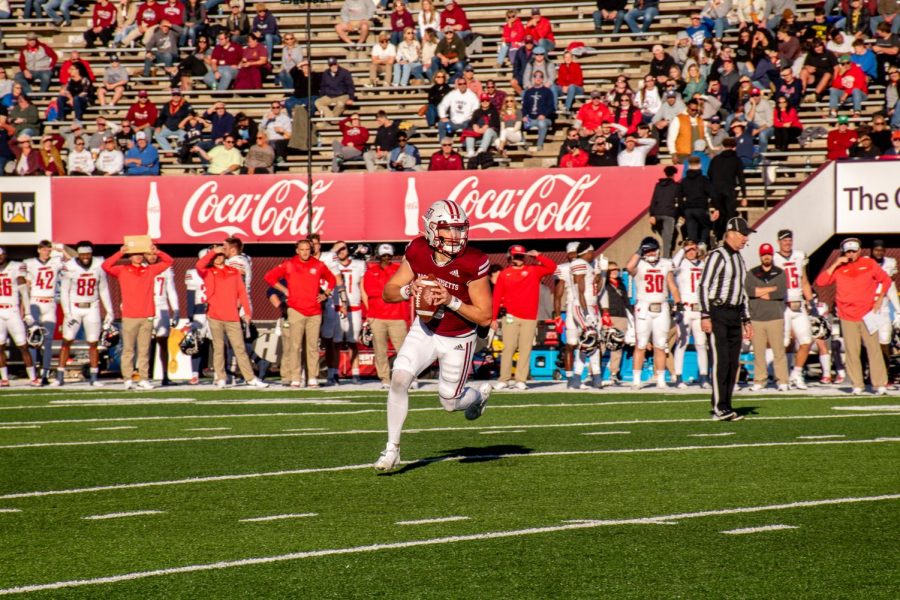
There’s no bigger stage in college hockey than the Hockey East.
However, that has not always been the case for the Massachusetts hockey team, which in just five years has transitioned from arguably the most popular athletic program at the school, after making the NCAA tournament in 2007, to second-tier status with the recent rise of the football and basketball programs.
UMass coach Don “Toot” Cahoon built up this once struggling program and raised it to new heights in his 12-year tenure in Amherst, which was highlighted by the aforementioned 2007 campaign when the team ranked as high as No. 5 in the nation and took rival New Hampshire into overtime in the HEA title game.
How quickly things have changed for the Minutemen. Since that season, Cahoon’s teams have failed to break the .500 mark and have yet to find that same standout talent to resurrect them yet again from the bottom of the HEA standings.
In the words of Rick Pitino, Jonathan Quick is not walking through that door, fans.
UMass has accepted that reality in the worst way as its new radio deal with WEEI’s Springfield branch is set to broadcast football and basketball games starting this coming year.
What is wrong with this picture? The program that plays in arguably the most competitive conference in its respective sport is being left out.
No disrespect to Mid-American Conference football or Atlantic 10 basketball, but there really is no comparison to Hockey East, which has produced four of the last five Division I college hockey national champions.
With UMass football making its Football Bowl Subdivision debut this season while playing home games at Gillette Stadium, and basketball gaining significant attention after its National Invitation Tournament run, the interest lies in those two programs as the hockey team has failed to have a winning season since 2007.
The reason for the program’s struggles could be geared toward numerous issues. The program clearly does not attract the same talent as HEA powers Boston College and Boston University, which both consistently obtain some of the highest rated recruiting classes. And the recent lack of success also puts the coaching situation into question.
So when Athletic Director John McCutcheon and Cahoon agreed it was “in the best interest” of the program for the coach to step down, it was apparent both sides were frustrated with the state of Minutemen hockey.
Despite the impact Cahoon had, and forever will have, on the UMass hockey program, it was clear his time was up. The program was struggling under his watch, and that shifted the focus of the athletic department to the rise of the basketball team. The lacrosse team’s undefeated regular season made it no easier on Cahoon, who was frustrated with the lack of attention for the program he resurrected.
Although his argument was fair, the fact of the matter is that it was time to move on and make the necessary moves to push the program in the right direction and dig itself out of its second-tier status yet again. And the inability to take that next step above the bottom half of the HEA does not help the cause.
Although Cahoon concludes his tenure with three consecutive first-round exits in the HEA tournament and a 166-225-42 overall record, his importance to the hockey program cannot be overlooked.
Cahoon took over a program in 2000 that was a relatively unimportant in the mid-to-late 90’s with the consistent success of the basketball program under then-coach John Calipari. Joe Mallen, Cahoon’s predecessor, led the Minutemen to seven straight losing seasons before Cahoon took over.
With basketball taking a major hit following the Marcus Camby scandal, Cahoon’s success in just his third year on the job caught the attention of fans, as his nickname “Toot” was a name that was recognized by all students, hockey fans or not, for the coming years.
His teams were ranked in the top 10 multiple times, and were nearly led to the Frozen Four by the 2012 Stanley Cup champion and Conn Smythe trophy winner, Quick.
Cahoon left a permanent mark on the program off the ice as well as on it, as the 2010-2011 academic progress rate proved the success of the team in the classroom with an impressive score of 988 in the multiyear ratings.
It is inevitable that Cahoon has made his mark with the Minutemen. But as fans and followers move on with the new academic year quickly approaching, what everyone really cares to know now is who will be behind the UMass bench in October.
With this decrease in status must come a sense of urgency to fill the head coaching, as well as assistant coaching, void with a name that can help instill new life into the program, attract local recruits away from the conference powers and bring back hope into a fading fan base that is quickly reverting back to basketball as its winter preference.
The timing of this decision could not have been much worse, however. At this point in the offseason, a majority of the high-profile names in college hockey have already found jobs, leaving slim pickings for a program in need of a big-name addition.
Favorites for the job include Minnesota Wild scout Darren Yopyk, United States Hockey League’s Dubuque Fighting Saints head coach Jim Montgomery and Yale assistant coach Kyle Wallack, according to Joe Meloni of College Hockey News. But there must be a belief throughout the athletic department that it is a necessity to find a significant enough candidate to continue to bolster the name of the program so that it may compete with the household coaching names that accompany the Minutemen in the HEA.
Whoever it is that serves as Cahoon’s successor will inherit an up-and-coming group that, with experience and proper coaching, has the potential to make an impact in the HEA for the next couple of seasons. Incoming junior forwards Michael Pereira and Conor Sheary have shown big improvements over the past two seasons, giving UMass a chance to improve as a team with the same nucleus intact.
With the goaltending carousel of incoming sophomores Kevin Boyle and Steve Mastalerz, along with junior Jeff Teglia, continuing to raise confusion among fans, opponents and the media alike, a new face should only raise the uncertainty and unpredictability of this summer proceeding the 2012 season.
Nick Canelas can be reached at [email protected] and followed on Twitter @MDC_Canelas.


